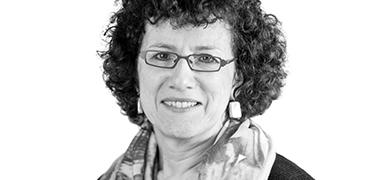We are celebrating the 10-year anniversary of Debats d’Educació by giving the educational community the opportunity to air its views

Professor of Education, London Centre for Leadership in Learning, Institute of Education, University of London and OECD expert
The three things I’ve learned
Make the most of pupils’ curiosity and desire to make a difference
Humans consistently seek new experiences and follow their curiosity without extrinsic rewards. Motivation is tied to interest and engagement. Motivating learners is a complex and idiosyncratic activity with many possible solutions. Young people need to know why they are learning something and what difference it can make for them. Their motivation to learn is related to the amount of connection to their own experience, to experiences they can imagine and ideas that excite them. They are particularly motivated by exploring and engaging in activities with an impact on others or rooted in social issues. They are fascinated by projects that take them into the community, allow them to work in groups, influence real decisions and challenge them to develop skills and knowledge that other people clearly value.
Foster independent learning
Independence isn’t something that just occurs. Like all other complex human skills, becoming independent requires the availability of good models, support and lots of practice. It doesn’t happen immediately and there may be lots of setbacks along the way. When educators work to involve pupils and to promote independence, they are really helping them to be responsible for their own learning and giving them the tools to undertake it wisely and well. Pupils need to be able to experiment with new ideas, try them on, see how they fit, struggle with the misfits, and come to grips with them. They need to know the goals and the expectations, as a reference point for their learning work. This requires lots of time to practise, reflect, argue and try again.
Make learning social
Learning doesn’t happen in isolation. Pupils learn a great deal from one another and from others around them. For many, learning with peers is critical. Knowledge is often constructed during shared experiences, through the interplay of many minds confronting a challenge together. Social engagement can provide a powerful vehicle for learning. The concept of a learning community is an important one for pupils to grasp. Co-operative cultures and group investigation methods allow pupils to process ideas and deal with beliefs, conceptions, inconsistencies and misconceptions out loud, with their peers. Learning is enhanced when pupils learn how to learn together, engage in serious conversation about and examination of important topics, have shared responsibility for applying what they know to new situations, and use the time to raise questions and to monitor their own learning, individually and as a group.














 The texts published on this website are, unless otherwise indicated, covered by the Creative Commons Spain Attribution 3.0 licence. You may copy, distribute, transmit and adapt the work, provided you attribute it (authorship, journal name, publisher) in the manner specified by the author(s) or licensor(s). The full text of the licence can be consulted here:
The texts published on this website are, unless otherwise indicated, covered by the Creative Commons Spain Attribution 3.0 licence. You may copy, distribute, transmit and adapt the work, provided you attribute it (authorship, journal name, publisher) in the manner specified by the author(s) or licensor(s). The full text of the licence can be consulted here: